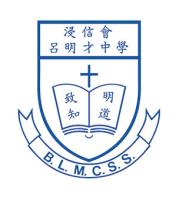| Language Policy |
English is adopted mainly as the medium of instruction (please refer to the subjects offered in 2023/2024 and 2024/2025 for details). Emphasis on biliteracy and trilingualism<br>1. Native speaking-English teachers organize activities.<br>2. To host exchange students from foreign countries.<br>3. To organize activities in English Weeks and English Circle.<br>4. To receive and organize overseas study tours.<br>5. To launch Chinese and English Reading Scheme.<br>6. To promote Chinese, English and Putonghua Speech Festivals. |
| Learning and Teaching Strategies |
Learning strategies: The school advocates that no limit should be set for learning. There is no specific venue, boundary or target when one wishes to learn. Students are guided to use different online resources. The school also emphasizes that students should read more by incorporating reading time in the timetable daily. It is hoped that students’ knowledge base can be broadened.<br>Teaching strategies: Various teaching strategies such as group discussions, reports, "flip-the-classroom", cooperative learning and "ShareStart" will be used based on different subjects’ needs. Students are taught and equipped with high order thinking skills. |
| School-based curriculum |
1. Electives: 3X. There are over 100 subject combinations of 3X for F.4 - F.6 from 2012 onwards. Network programs of music, Japanese Language, Korean Language, Spanish Language, French Language and applied learning.<br> 2. Curriculum highlights: Drama Education, Civic Education and Individual Students Planning. |
| Approach to Catering for Learner Diversity |
1. In order to implement the policy concretely, the school organizes enhancement classes which are led by professional tutors to develop students’ potential and equip them with high order thinking skills.<br>2. Enrichment programmes are also provided for less able students. Through a wide range of learning activities including remedial classes, F.1 Summer Bridging camp and after-school tuition groups, students’ diverse learning needs are met and they can be more motivated to learn. |
| Approach to Integrated Education |
With regular meetings held by school’s Student Support Team (Members include Vice-principal, teacher coordinators, teaching assistants and school social worker), our school adopts whole school approach to support students with SEN. Some teachers have completed Integrated Education related courses and are able to support students professionally. The Student Support Team should maintain good communication for supporting the learning needs of students with SEN. The school releases Integrated Education information to teachers and shares rationales and teaching strategies regularly. To enhance teachers with more professional knowledge, the school holds thematic seminars and encourages staff members to attend “Catering for Learner Diversity” courses provided by the EDB.<br><br>The school has employed teaching assistants and supporting staff to implement various training programmes and small group activities. By flexible deployment of the “Learning Support Grant” and other school resources, the school aims to enhance students’ learning effectiveness through adaptation of assignment and assessment. <br><br>To identify students with SEN for learner diversity as early as possible, the school has meetings with students in need and their parents after the F.1 students’ registration. The school works closely with EDB and the School-based Educational Psychologist by holding meetings and evaluating students’ progress regularly. Parents will be invited to join the meetings to set up learning plans for students and review the plans’ effectiveness together. To allow parents understand more about their children with SEN’ learning conditions and assist students' learning and personal growth, the school arranges meetings for parents regularly. |
| Education Support for Non-Chinese Speaking (NCS) Students |
|
| Home-School Co-operation |
1. Parents play active roles in handling some administrative works as well as providing valuable opinions. Over 800 participants join the Parents Association Annual Meeting and Parents’ Night every year. Their contributions strengthen the bond between parents and teachers and bring positive influence towards students’ growth.<br>2. The school coordinates with the Parents Association to organize various activities and provides support to fellow parents by arranging regular Christian Fellowship. Through a wide array of activities, the bonding between parents can be built and they can support each other while growing with their children. |
| School Ethos |
The school has established for more than 40 years. Students are encouraged to make progress and breakthroughs in life in search of excellence. |
| School Development Plan |
1. Major concerns in 2023-2028 school development are "Healthy Campus", "Learning Community" and "Serving School".<br>2. Focus on the betterment of special rooms and public area on the campus (Please refer to School Facilities for details.) |
| Teacher Professional Training and Development |
1. Through organizing Staff Retreat twice a year, it is hoped that teachers will be able to enjoy spiritual development, and thus maintain support among colleagues and enhance team spirit. <br>2. There are around 10 teachers’ gatherings per year, namely Teachers’ fellowship and Staff Development Day. These gatherings are aimed at fulfilling and developing teachers’ individual needs (handling pressure, spiritual advancement, etc.), collective needs (risk management, discipline and guidance skills, etc.) as well updating them with latest education development (Education reform, new teaching techniques, etc.). |
| Life-wide Learning |
The school provides more than 60 extra-curricular activities for students to opt for. They are divided into four categories which include <br>(i) Academic,<br>(ii) Sport, <br>(iii) Art & Leisure and <br>(iv) Service & Religion.<br>Students can develop their potential based on their preference. |
